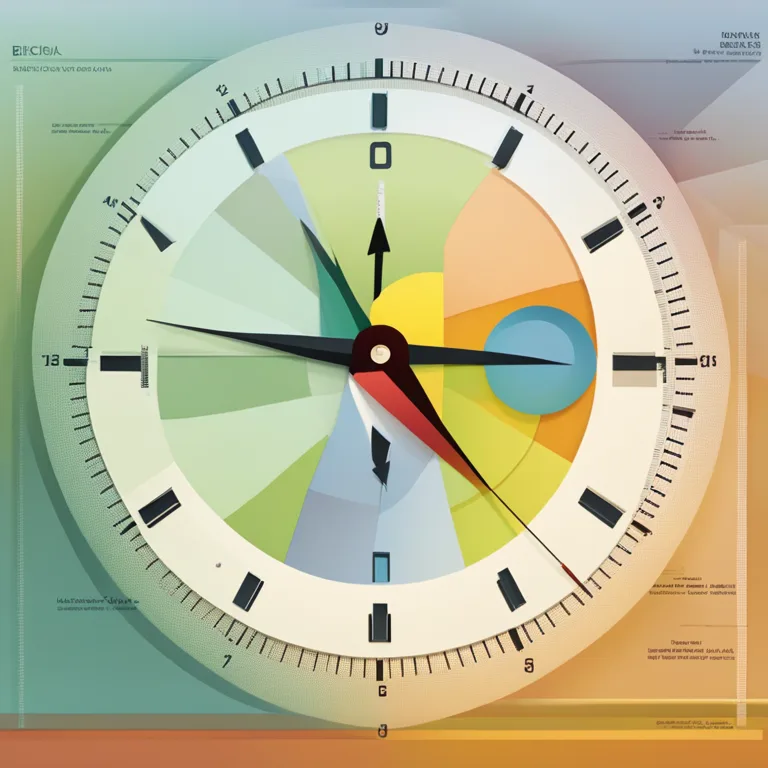
The Rhythms of Life: Understanding Biological Cycles
Delve into the fascinating world of biological rhythms and discover how they shape our lives, influence our health, and intertwine with nature's ebb and flow.
article by Adrian Wallace
Rhythms that Rule Our Lives
Biological rhythms are the natural cycles that dictate the temporal patterns of living organisms, encompassing humans, animals, plants, and even microbial life. Essentially, these rhythms are our bodies' intrinsic clocks, governing an array of physiological and behavioral processes. They dictate when we feel alert, when we crave sleep, the timing of our digestive processes, and even the subtler aspects of our metabolism and hormonal balance. Fascinatingly, these rhythms have co-evolved with the cycles of the earth and are entrained by environmental cues such as light and temperature.

Types of Biological Rhythms
Classified by their duration, biological rhythms are categorized primarily into three types: circadian, ultradian, and infradian rhythms. Circadian rhythms chart a course over roughly a 24-hour cycle, influencing our sleep-wake patterns and hormonal secretions. For example, the cortisol level in our body peaks in the morning, helping us wake up. Ultradian rhythms, with cycles shorter than 24 hours, include the stages of sleep and the rhythm of heartbeats. In contrast, infradian rhythms, like menstrual cycles or seasonal affective disorders, have cycles longer than 24 hours. The harmonization among these rhythms is critical for optimal health, and disruptions can have profound effects.

Entrainment and Zeitgebers
Our internal clocks are naturally attuned, or entrained, to environmental signals known as zeitgebers (time givers). The chief zeitgeber is natural light, with others including temperature, social interactions, and meal times. Embracing the effects of zeitgebers is crucial for maintaining a robust circadian rhythm. Notably, the increasing prevalence of artificial lighting and screen time has altered our exposure to natural light signals, presenting challenges in maintaining our circadian health. In 2024 and beyond, understanding and managing the impact of these modern lifestyle factors grow ever more important.

Biorhythms and Health
The tight correlation between biological rhythms and health is an expanding field within chronobiology, the study of time-dependent biological processes. Disruptions in our biological rhythms, or "chronodisruption," can lead to adverse health outcomes, like an increased risk for chronic diseases, mood disorders, and sleep problems. Conversely, aligning our activities with our biological rhythms—practicing good sleep hygiene, regular meal times, and syncing our work schedules to our peaks in alertness—can foster enhanced well-being and productivity. As awareness of chronobiology's significance in daily life grows, so does the focus on lifestyle adjustments to support it.

The Frontiers of Chronobiology
Tantalizing advancements in chronobiology suggest that biological rhythms could have implications far beyond personal well-being. For instance, certain medical treatments, including chemotherapy and immunotherapy, are being timed based on the body's biological rhythms to maximize efficacy and minimize side effects, a practice known as chronotherapy. Moreover, as the effects of climate change reshape seasonal patterns, understanding the consequent influences on biological rhythms in both humans and ecosystems becomes a pressing concern. Adapting to these changes requires a deep awareness of the delicate interplay between our biology and the environment.
Toward Synchrony With Our Inner Clocks
In the quest to achieve a balanced life, aligning with our biological rhythms presents a powerful strategy. Simple measures like regulating exposure to light, maintaining consistent daily routines, and adapting work schedules to individual chronotypes (personal biological preferences for morning or evening activity) can be transformative. As we move deeper into the 2024 epoch, embracing the significance of these rhythms encourages a symbiotic relationship with time, redefining the essence of modern living in harmony with our intrinsic nature.
Published: 1/4/2024
Modified: 1/4/2024
More predictions
Come back here soon to learn more about yourself and your future


The Impact of Biorhythm Compatibility
Discover the impact of biorhythm cycles on relationship dynamics and compatibility in our insightful article.


The Accuracy of Biorhythms: Fact or Fiction?
Examine the validity of biorhythms in predicting personal vitality and life cycles in this in-depth analysis.


The Practical Uses of Biorhythms in Daily Life
Discover the practical applications of biorhythms across various aspects of daily living, from personal health to decision-making.